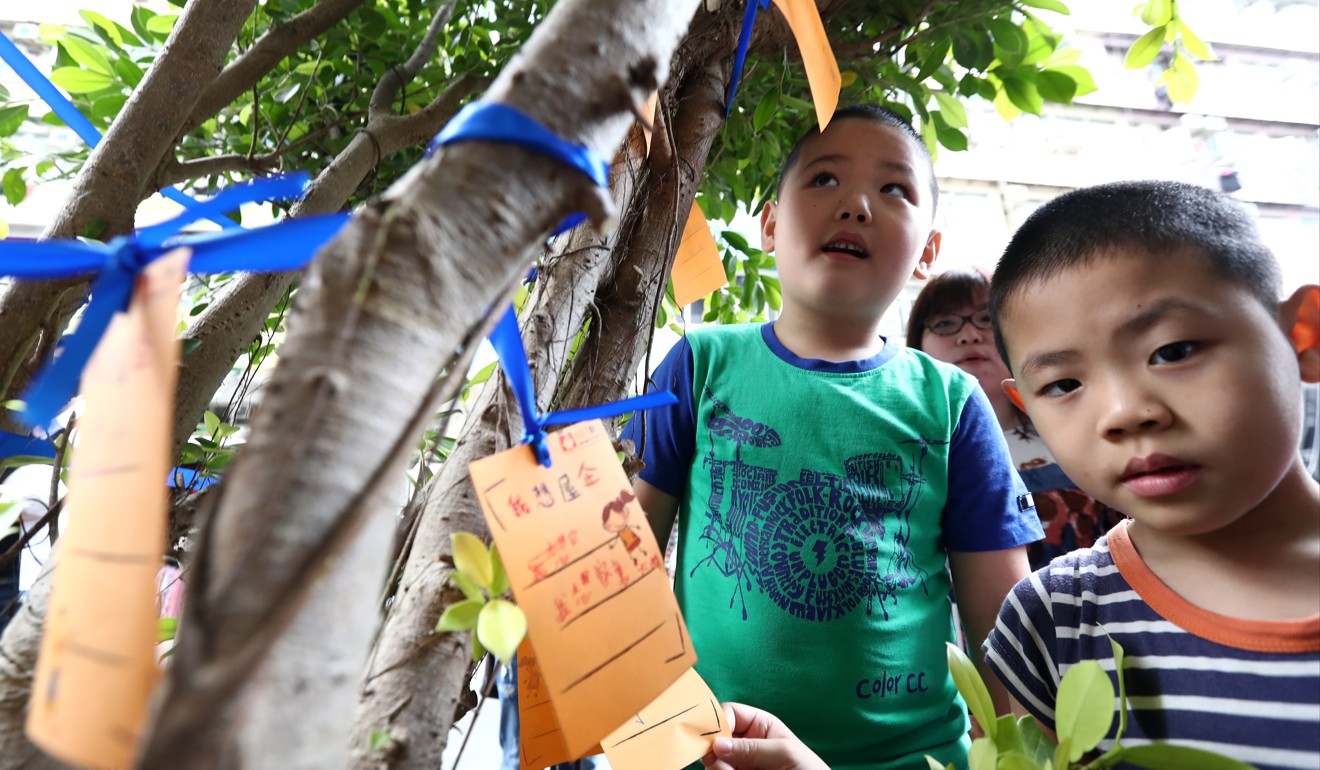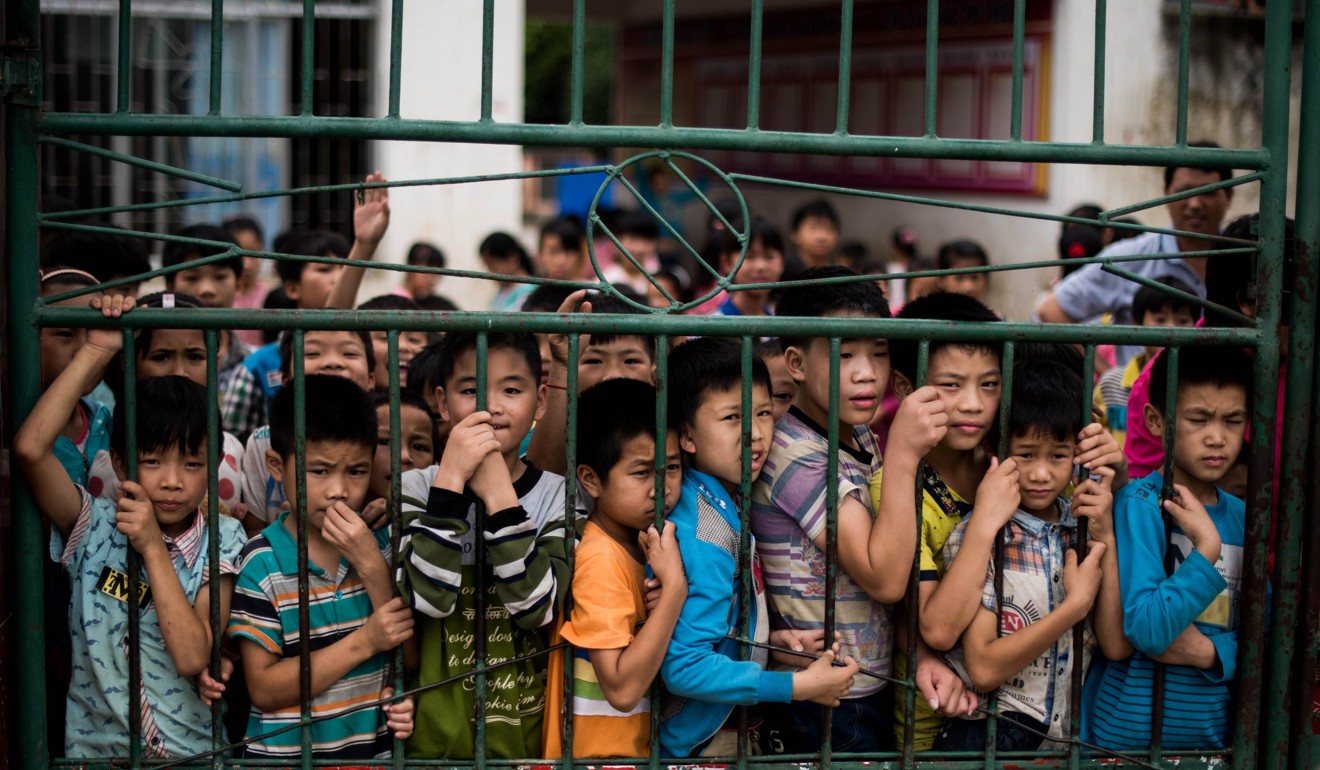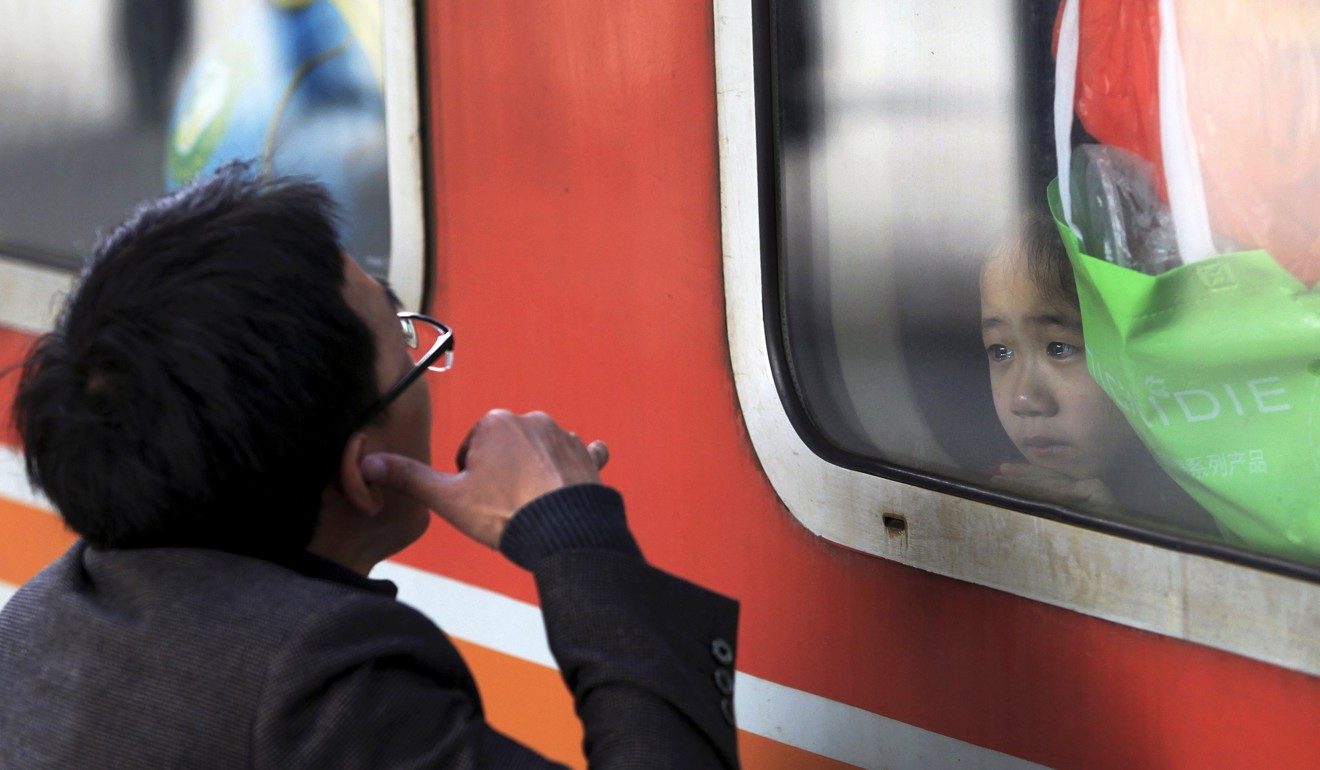
Left-behind children a poignant reminder of the cost of China’s development
Lijia Zhang says in the run-up to Children’s Day on June 1, China should take action to help the millions of children living away from their migrant worker parents
Every year, millions of urban children in China enjoy a day off on Children’s Day, spending it in parks or playgrounds, often accompanied by their parents. For children of migrant workers such as Jiachao, however, the occasion reminds them of their disadvantaged position.

This year, with Children’s Day around the corner, my thoughts once again turned to this group of children. In the past three years, I have spent many weeks at a picturesque village named Jidao in Guizhou province to research a book on left-behind children. Here, driven by poverty and lack of job opportunity, more than half of the able-bodied villagers have left for the city, joining the biggest tidal wave of migration in human history.
These children are, in a sense, orphaned by China’s economic miracle
Circumstances oblige migrants to leave their children behind: high living costs in the city; their often unstable job situation requiring them to move from one construction site to another, for instance; and China’s hukou or family registry system, which makes it very hard for them to send their children to local schools in the city.
Back in the village, left-behind children become vulnerable to emotional and developmental challenges. As I conducted in-depth interviews with a dozen such children in Jidao, I came to grasp their anguish.

Li Chunhua, now 22, was four when she was unceremoniously transferred from her parents to her grandparents. At first, she thought she was going to spend a few days’ holiday. But, having jumped off the bus, she was handed over to her grandma and her parents hurriedly jumped back onto the vehicle. As the mouth of the bus swallowed them, the little girl burst into tears.
The parents I interviewed always claimed that they left their villages to ‘eat bitterness’ for the sake of their children
It formed her earliest memories, and she never got over the sense of abandonment. Yet, she is one of the luckier ones. Guided by an uncle, she managed to get into a fourth-tier college in the province to study accountancy.
As in her case, the majority of the children are looked after by their grandparents who are usually illiterate. Struggling with tilling the land and housework, they are not always able to provide adequate care, let alone help with the children’s homework.
The parents I interviewed always claimed they left their villages to “eat bitterness” for the sake of their children: for them to have a better education and a better future.

The lack of interaction between parents and children has led to psychological and developmental problems
Researchers from Stanford University, working together with Chinese academics, found a high drop-out rate in rural China. Many of the drop-outs are left-behind children.
Constrained by time and money, migrant parents usually manage to go home only once a year, typically during the Lunar New Year. The lack of interaction between parents and children has led to psychological and developmental problems for some children.
According to a 2015 survey by the NGO On the Road to School in Beijing, 70 per cent of left-behind children suffered from mental health issues, such as anxiety and depression, and 34 per cent considered suicide.
Huang Kailong, a 16-year-old cousin of Huang Hushing, toyed with the idea, too. She was only one when her parents first left her under the care of an aunt. Over the years, while they sweated away in the city, the girl was sent to stay with various relatives, an arrangement she came to hate. Three years ago, after another argument, she ran away from home, darkening her once promising future.
The longer I stayed in the village, the deeper I understood the enormity of the challenges this phenomenon presented. China has the lowest human capital – the lowest percentage of students moving on from junior to senior middle school – among middle-income countries, behind South Africa, Turkey and Brazil. But, more importantly, migration of parents for work has had a negative impact on the well-being of their children.
At a time when the whole nation is gearing up to celebrate Children’s Day, it may be worthwhile to turn our attention to the left-behind children and discuss ways to address the issue. Before the eventual abolition of the hukou system, migrants should be allowed to send their children to local schools. Some kind of social provision should be introduced to provide support to needy children. And migrants should be educated on how to handle their parental responsibilities.
To start with, let’s make Children’s Day an occasion for children to spend time with their parents so those such as Jiachao can share a meal with his father without having to beg for it.
Lijia Zhang is a writer, journalist and social commentator

